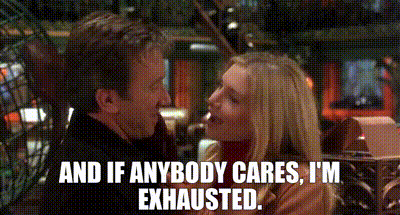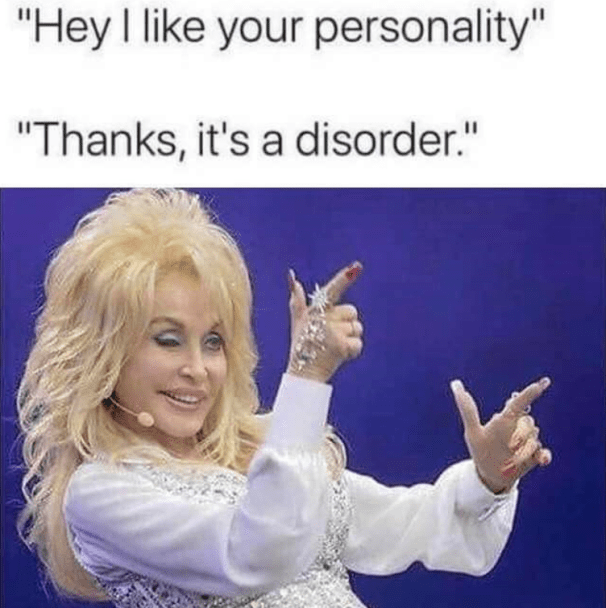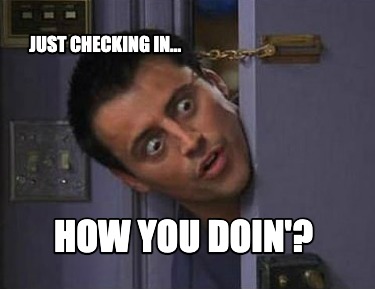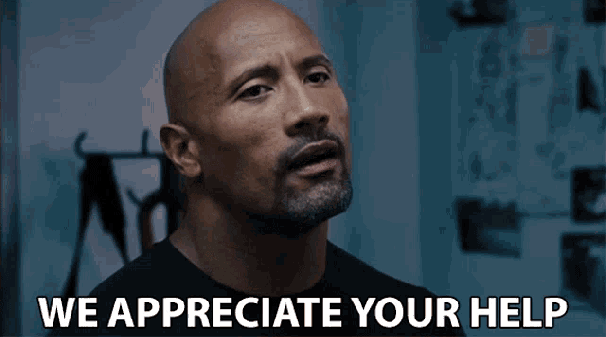As a chronic pain survivor, I can’t tell you how many times I’ve wanted to fully explain to people why I say, do or think the things I do. Sometimes we who suffer just want to scream, but of course we (normally) don’t. When asked how we’re doing, we normally respond with, “I’m fine,” which is code for “I’m anything BUT fine.”
Since most of the time the only response you’ll hear from us is, “I’m fine” (more about that in a minute), I’ve compiled the following list of facts us chronic pain sufferers wish you knew about us. I would welcome more in the comments below, if you are a survivor and feel so inclined.

- We don’t need your advice; we need love, patience and understanding.
I say this not to be rude, as in, “I don’t need your stinkin’ advice!” What I’m saying is, many times, when you think you’re helping, you’re not. “Have you tried stretching?” some ask. “Have you tried yoga?” or “Have you tried” this or that or the other, someone else inquires.
We know your cousin’s best friend or coworker’s mom may have tried some fancy, new treatment which worked beautifully on them, but this doesn’t really help us at all. What we need is for you to love us. Be patient, and try to understand we are (sometimes) eaten up with misery and despair. It comes and it goes, but we don’t need lectures or advice; we need love. We need a hug. We need prayer.

2. “I’m fine” means “I’m not fine, but surviving.”
Ha, that’s almost a joke among those of us who suffer:
“How are you doing?” you ask.
Deciding we REALLY don’t want to burden you with the dark and depressing truth, figuring some of you don’t have time for us to unburden ourselves, and others of you, no offense, don’t really care, we smile and respond, “I’m fine, how are you?”
I’m not saying everyone who says “I’m fine” is NOT; I’m simply stating that, for chronic pain survivors, most of the time, things are not fine.

3. “I’m NOT fine” means “I’m having a bad, bad day with my pain.”
When we do respond to “How are you doing?” with something beyond “I’m fine,” that’s when you know things are REALLY bad. Even though I know my family loves me, and is concerned about me, I still offer up the “I’m fine” response. I’ve already mentioned why some of us may do this, but another reason—at least for me—might be that it’s easier to avoid the dark than to face it.
When I do respond with something like, “Not having a good day with my pain,” then you KNOW it’s really, really bad. For many of us, if we even mention our pain, you can rest assured we’re in a terrible fight that day.

4. Chronic pain is exhausting.
Many times I feel like going back to bed just a few hours after getting up. This brings on feelings of anger, depression and guilt. I’m angry because I tire of living like this, I’m depressed because I see no way out and I feel guilty because I feel I’m letting my family down. I want to be so much more, but have no control over the fact that I CAN’T be. But more on the emotional toll of chronic pain in my next point.
Just know we who suffer are exhausted, not sometimes, but all the time.
“Fatigue and chronic pain tend to go hand in hand; often the fatigue can be harder to live with than the pain! Fatigue is not just feeling a bit tired, it’s feeling completely and entirely exhausted through every fibre of your being.” (https://www.pathways.health/)

5. Chronic pain births deeply emotional responses such as guilt, anxiety, depression, despair and the like.
“Depression magnifies pain. It makes everyday living more difficult” (https://www.webmd.com/). I’ve talked to many people who suffer chronic physical and/or emotional pain, and nearly all of them have told me they fight depression. We fight THROUGH this, but it seems to always return, sometimes worse than before.
Likewise, some of us feel guilty because we’re not at the level of activity we used to be, or perhaps think we’re being a terrible burden and inconvenience to those who love us. You wouldn’t BELIEVE the guilt I feel when my son or son-in-law has to mow my yard. My brain spews thoughts like, “You’re so pathetic! Your dad is 20 years older than you, and he mows his own yard. Yet here you are, sitting in your recliner like an invalid while someone else does what you should be doing.” My family never makes me feel like this, by the way; it’s all in my head.
Regarding anxiety, “If you are dealing with chronic pain then it is no secret that stress comes along with it. Whether you are stressed from never feeling relief, or because those around you aren’t understanding your pain, having stress is a common lead into anxiety.” (https://www.apmaugusta.com/)
Finally, despair enters the spirit when we feel there is no hope for us, at least on this side of Heaven. We wonder, “Am I going to live the rest of my life in pain?” Then this morphs to “How LONG will my life be? How LONG will I have to suffer?” While I (no longer) suffer from suicidal ideations (thoughts), there are days I wish I was no longer alive, if only to stop the pain. We must be very observant of chronic pain victims who begin to “look forward” to death, because, in some (but not all) cases, this can lead to suicidal ideations.
In a blog from December 19, 2018, I wrote about emotions as they relate to suffering in my article, “The Dysfunctional Relationship Between Chronic Pain and Dark Emotions”. (https://brokenpeople.blog/2018/12/19/the-dysfunctional-relationship-between-chronic-pain-and-dark-emotions/)

6. Every act we undertake must be weighed against the pain, rest and/or recovery it might bring about.
Please forgive us if we take an uncomfortable amount of time deciding whether or not to do something. We’re normally weighing the good of the activity against the bad of what we think might happen, and then comparing this to what we’re doing tomorrow or the day after that. We ask ourselves:
“Will this leave me in more pain, leading me to not be able to live up to my responsibilities?”
“What will they think of me if I decline the invitation?”
“If it does cause more pain, how long will it take for me to recover?”
“Is the pain worth the enjoyment of the action itself?”
Then, when we do have to decline the invitation, the guilt (and sometimes depression) returns. It’s a vicious cycle!

7. Kinesiophobia; fear of movement
“Kinesiophobia is defined as a fear of movement. Due to the fear of re-injury, (chronic pain survivors) believe pain to be a sign of bodily harm, and that any activity causing pain is dangerous and should be avoided.” (https://www.raynersmale.com/)
“The level of physical activity was significantly lower among those with chronic pain and was significantly associated with kinesiophobia. Fear- avoidance beliefs play a more important role in predicting future physical activity levels than pain characteristics.” (https://bmcgeriatr.biomedcentral.com/)
In other words, the fear of movement causes us to avoid that which we think will make it worse, sometimes even more than the pain itself. I didn’t even realize this until I started doing research for this article.
“Patients develop and compound negative beliefs about their chronic pain and start to fear movement (also known as kinesiophobia). They fear that exercising and even normal day to day functioning that requires them to move their body, is going to worsen their pain or damage their body.” (https://www.pathways.health/)

8. Pain affects the brain: “brainfog.”
“People who are suffering from chronic illness or pain may find their cognitive abilities declining. This is often known as ‘brain fog’. It is defined as a lack of mental clarity because of less capacity to concentrate or recall things” (https://oklahomapaindoc.com/). Webster’s defines “brain fog” as a “temporary state of diminished mental capacity marked by inability to concentrate or to think or reason clearly.”
When you’ve lived in chronic pain for an extended period of time, it gets harder to remember some things, and to concentrate on others.

9. We need you to check in on us every now and again.
Yes we may tell you we’re “fine,” but it’s still nice of you to inquire how we’re doing. And when we DO say, “I’m fine,” please go one step further, like my dad always does, and say, “Now tell me how you’re REALLY feeling.”
But be prepared; once we feel we can fully open up to you, it’s like a burst dam of emotions, and there’s no telling what might come out. Seriously, if you’re not prepared for that, don’t ask.
If you can’t handle it, let’s you and I stay the “I’m fine” course.

10. We need your help, even if we’re too afraid or embarrassed to ask.
I need help cleaning my garage.
I need help mowing my yard.
I need help shoveling the snow from my driveway.
Heck, sometimes I need help getting out of my recliner!
My grandson, God bless him, will sometimes even pick things up for me off the floor, saying, “I know your back hurts, Poppy. I’ll get that for you.” He helps me, yet somehow doesn’t make me feel like a loser.
Constantly needing so much help is why such a toll is taken on those who are closest to chronic pain survivors. I wonder sometimes if my wife is just exhausted from having to pick up the slack, but she never leads me to feel this way. She faces life with her same, beautiful smile every day, no matter how she feels. Thank God for her, seriously. I hope you have someone in your life like my Laura; she’s my little princess, and I don’t know how I’d make it without her.
Speaking of asking for help, my children literally sat me down a couple weeks ago when they heard I was planning on buying a riding lawn mower. I wanted one so I could mow my own yard, thinking I could go slow, and that hopefully taking my time wouldn’t hurt me, or at least not hurt as much. They asked me point-blank, however, not to buy a mower, vowing they would take care of the yard for me this year.
Now, as a man, this will bring about the aforementioned guilt, but I have to learn to live with it. I’ve gotten to the point in my chronic pain that I have to realize there are certain activities I have no business doing, such as mowing the yard.
As an example, the next-to-last time we had a big snowstorm here in southern Missouri, I swept (not shoveled, but swept) the sidewalk coming out our front door leading to the driveway. I figured sweeping the snow away wouldn’t hurt, but it DID. I threw my back out completely, and had to work from home a few days. Me being stubborn and thinking I could do this myself made for a miserable week for both Laura and me, and I was reminded once again of the hard lesson that I can no longer carry out certain actions by myself, or at the very least, without help.
I’m sorry to write so much; I’ve been trying to keep my blogs shorter, since I read somewhere that people are much more likely to read an article if they see it only requires a two-to-three minute investment. This is a subject I feel strongly about, though, and felt it needed much more time and space to flesh out.
Please know my family and I are praying for you, and wish you nothing but good things (even though “bad” is inevitable in this life).
Blessings.
This is an excellent list. I always appreciate your posts about chronic illness because you are spot on and explain what we chronically ill people go through very well. I still struggle with despair and suicidal thoughts at times. It is very emotionally painful to deal with. What you said about worrying about letting down your family is so true. I feel that way a lot. I just keep clinging to the Lord day by day. Prayers and blessings to you Rob!
LikeLike
Thanks so much for your feedback, Ryan! I greatly appreciate the encouragement, bro. Yeah, man, it’s a tough road to travel for sure. It’s exhausting, debilitating and infuriating. All we can do, as you say, is take it day-to-day, trusting the Lord has us firmly in His hands.
LikeLiked by 1 person
Thank you… Chronic pain is something I have had for over 30 yrs and yes, I also tell everyone I am fine, no matter my pain level and even after all these yrs, I still feel guilty over not being able to do things like other people. It never goes away for me…. I broke my ankle a couple of weeks ago and the doctor was shocked I didn’t need pain meds, I have enough as it is, don’t need more! But, this broken bone has taken me out. I don’t have the upper body strength to use crutches too often… My husband is great, but he “forgets” sometimes that I can’t do something simple. I have learned to just ignore their comments, only so many times I can remind people of my issues and I accept my limitations, even if others cannot.
LikeLiked by 1 person
Good day to you, Stella. I’m so sorry to hear that you’re part of the “chronic warrior” army. We were drafted into this service; we never signed up for it, that’s for sure. People don’t get that it’s just so FREAKING exhausting, ya know? As I type this, I’ve been at work a little over an hour, and I’m ready to lie down and take a nap. I HATE it; I HATE feeling like this, but once you resolve yourself to LIVE, the only option is to fight through it. Keep fighting the good fight! I’m praying for you.
LikeLiked by 1 person
Great post! I’ve been living with chronic pain for almost 12 years and can confirm everything you wrote. I am blessed to have a supportive husband and family. Keep up the good work I’ll be looking forward to more from you.
LikeLike
Thanks so much for your feedback! I greatly appreciate it.
LikeLiked by 1 person
Fantastic piece! Thank you for writing it. 🙏
LikeLiked by 1 person
No problem, thanks for reading!
LikeLiked by 1 person